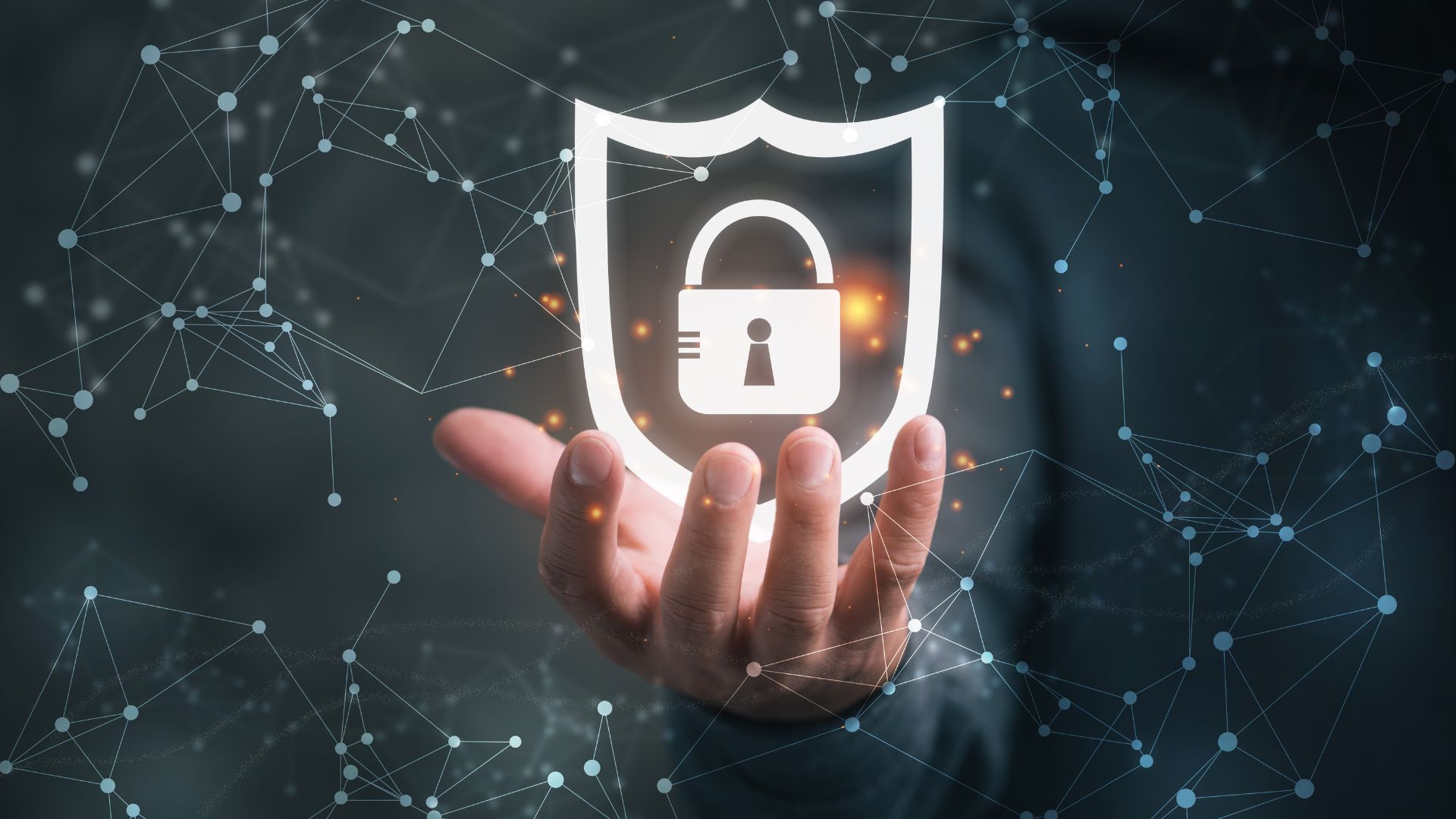Basic E-commerce Security Practices to Protect Your Store
Written by
Kinga EdwardsPublished on
Discover simple yet effective ways to enhance the security of your eCommerce platform and protect your customers’ sensitive information. (Ad)

Commercial collaboration
E-commerce is not just about targeting and retaining customers; it also requires strong security measures.
It’s common that when learning e-commerce, all we tend to master is marketing, copywriting, and retargeting techniques crucial for businesses, but there’s something even more important.
Preventing cyberthreats in a sensitive environment such as e-commerce is challenging but must be considered as essential to every e-commerce business.
What does e-commerce security mean?
E-commerce security involves a list of globally reliable guidelines and actions designed to protect customers and businesses when shopping online.
With such amounts of private information related to payment methods floating through the internet, it’s no surprise that the e-commerce industry has become a juicy target for cybercriminals.
But what are the best e-commerce practices for businesses? In this article, we will explore good e-commerce security actions you can take to ensure a sustainable business and your customers’ safety and trust.
Understanding the Risks
Identifying Common eCommerce Security Threats
Your eCommerce platform is an online marketplace that will inevitably attract customers and potential hackers.
Have you heard of phishing scams, malware attacks, or data breaches? The threat landscape is, unfortunately, challenging, and there exist many ways in which systems can be broken. Understanding these common threats is the first step to a robust security system.
Past incidents to learn from
A recent breach in 2020 affecting Shopify, a leading eCommerce platform, has raised concerns among online marketers and entrepreneurs. Unfortunately for Shopify users, the breach may have compromised delicate customer data, impacting numerous online stores. In response, Shopify has initiated an investigation and bolstered its security protocols to prevent future breaches.
Hackers are active worldwide, and even Chinese authorities have had to ask Alibaba executives to address a significant data breach. The breach involved the illicit sale of customers’ data leaked from Alibaba’s e-commerce platforms.
The fast response from government authorities emphasizes the gravity of the situation and shows a strong commitment to data protection regulations.
Cybersecurity is a worldwide issue that concerns industries and governments that want to keep their citizens safe all around the globe.
These are just two of many examples; imagine that, if such larger companies had incidents in the past, how easy it could be for experienced hackers to crack your security system if weak.
Implementing Best Practices
Strengthening Authentication Mechanisms
Your eCommerce platform’s authentication mechanisms are essential to defend your platform against unauthorized access. We are afraid that relying solely on passwords is no longer an option and that you should implement multi-factor authentication (MFA) as an added layer of security.
You can reduce the risk of security breaches in your online store by requiring multiple verifications, such as password verification, two-factor authorizations, and authentification apps. This might take time, but it will be worth it in the end.
Securing Payment Transactions
The e-commerce industry suffers massive losses annually from attacks and has lost over 40 billion USD in 2022 alone from online payment fraud. Security solutions are crucial to e-commerce sustainability.
Every online e-commerce platform needs a secure HTTP protocol, but you shouldn’t think this could be all. Using an encrypted connection increases your security and is mandatory. Using an HTTP is not a guarantee of not having a breach; there’s still a lot more you should do.
It’s crucial to encrypt sensitive financial data during all purchases and implement a robust encryption protocol adhering to PCI DSS. Your payment gateway should include point-to-point encryption (P2PE) and tokenization; this will reduce payment fraud from stolen data.
PCI DSS (Payment Card Industry Data Security Standard) is a set of security standards to ensure safety while handling credit card information during transactions. This is very useful to businesses that accept, process, store, or transmit cardholder data because it helps them prevent data breaches and protect their clients’ financial information.
While we agree that any information leak could be lethal to any company, the worst attacks usually involve payment methods. Unfortunately, payment fraud is increasing numbers year by year.
This is why these prompts are non-negotiables for safeguarding your customers’ payment information. Remember, a single breach could not only result in financial loss but also irreparable damage to your reputation and customer trust.
Regular Software Updates and Patch Management
Every e-commerce expert should know that each software update brings crucial security patches to address recent vulnerabilities.
Whether talking about your eCommerce platform, plugins, or web server software, staying up-to-date is key to maintaining your customers’ safety. Make patch management a priority; you can even hire a professional to manage this department and help your business reduce the risk of cyberattacks.
This is a simple summary of some tools that can be used for patch and software management:
- SCCM (System Center Configuration Manager) is a Microsoft product to manage software updates and patches on Windows systems. It’s simple to use and will allow your e-commerce to access multiple updates and patches simultaneously.
- WSUS (Windows Server Update Services) is another product created by Microsoft to manage software updates and patches. This was designed for smaller organizations.
- Ansible Lab (Google Cloud Platform) is an open-source tool compatible with Windows, Linux, and macOS. It’s also used to manage software updates and patches, allowing businesses to automate the process of security updates.
Opt for a Hosted E-commerce Platform
When choosing to use a hosted platform or creating your own, it is always best to go with the experts. If you can’t maintain and deal with the added security issues that hosting your platform could cause, you should change your strategy. Measure the size of your business correctly and make clever decisions regarding this.
You can solve most security problems by choosing a hosted e-commerce platform rather than trying to roll your own.
Also, guarantee a PCI-compliant hosting provider to get top-notch protection. This part of the job with another company could cost you some money, but it will be a huge saving if you’re not prepared to deal with a security breach as a self-hosted platform.
Train Your Employees and Customers
Your employees and customers will be your best allies regarding cybersecurity. It is recommended that you provide training to your staff and help them recognize phishing scams and risky situations.
Hackers may leave phishing links in your site’s blog comments or contact forms to test and attempt to fool your customer service staff. All your customer-facing teams can face attempts of phishing and spear phishing attacks. Your HR team can conduct simulated phishing campaigns to help raise awareness.
They can also create informative newsletters or meetings to keep everyone educated on the latest trends regarding security within the e-commerce industry.
Additionally, consider educating your customers about safe online shopping practices and how to spot signs of a potentially dangerous website. You can ask for the help of a marketing team to communicate this information to your clients. By using eye-catching visuals and creating strategic campaigns, you can easily educate your customers and save many headaches.
Monitor transactions and accounts’ activities
Be extra careful when reviewing your transactions and accounts. The early discovery could save you from attacks; sometimes, hackers try corrupting accounts only with small changes, such as small amounts or mismatched shipping and billing information, before they move on. Unfortunately, It’s not enough to review your transactions and accounts once a week or less. You should check your account for suspicious transactions every day, even if they do not involve any money. Staying ahead of criminals and notifying your platform host and bank as soon as you see something weird is the best approach.
Key Tools for Better Protection
Antivirus and Antimalware Solutions
Hackers attacks can’t be stopped by regular antivirus software like they used to. Attackers’ tools are now more advanced than the antiviruses many companies use.
It’s essential to protect yourself and your customers with a robust and modern antivirus solution. These software programs act as protectors, scanning for and neutralizing malicious attempts before they can wreak havoc on your eCommerce platform. Luckily, nowadays, many antivirus companies provide tailored programs for eCommerce businesses, offering real-time protection against modern threats.
When buying antivirus solutions, especially if your business is large scale, you should consider creating a private contract with them and asking for a representative to discuss the particular situation of your e-commerce.
The rapid proliferation of malware variants stresses the need for efficient protection. You can safeguard your eCommerce platform and prevent malware infections that could compromise sensitive data and disrupt business operations.
Consider using a Virtual Private Network (VPN)
The use of public Wi-Fi networks increases the risks of a security breach. Hackers can crack unencrypted data transmitted to internet connections. Using a VPN to mask your IP address and encrypt your data will protect your business and reputation.
Whether you’re accessing your eCommerce platform from a public Wi-Fi network or the comfort of your home office, an iOS VPN ensures encrypted communication channels. This will shield your data from potential threats. Prioritize privacy and take control of your online security with a trusted VPN service.
Conclusion: Guarantee a Future for Your E-commerce
By following these pieces of advice, you will preserve the future of your business.
As the ex-CEO of IBM, Ginni Rometty, once said, “Cybercrime is the greatest threat to every company in the world.”
Every entrepreneur trying to make their way into the digital world should be concerned about the security of their platforms. There’s no need for this to be stressful, but staying proactive and active is essential.
Be up to trends, stay informed, and follow professional advice; your information should be safe.
***


